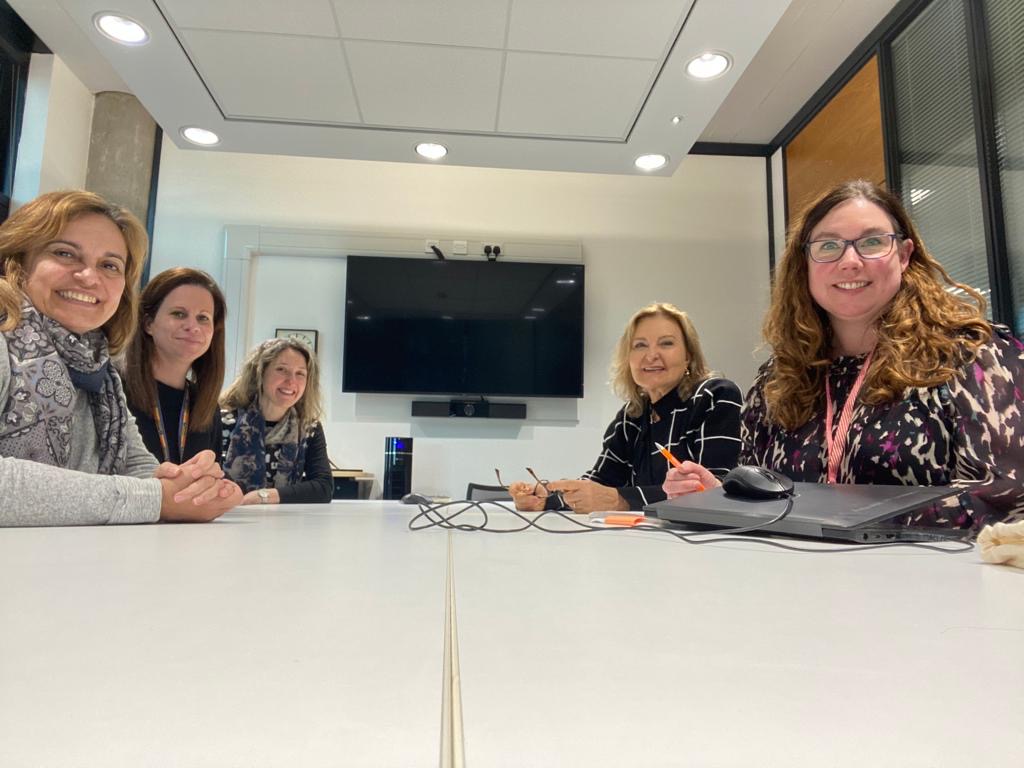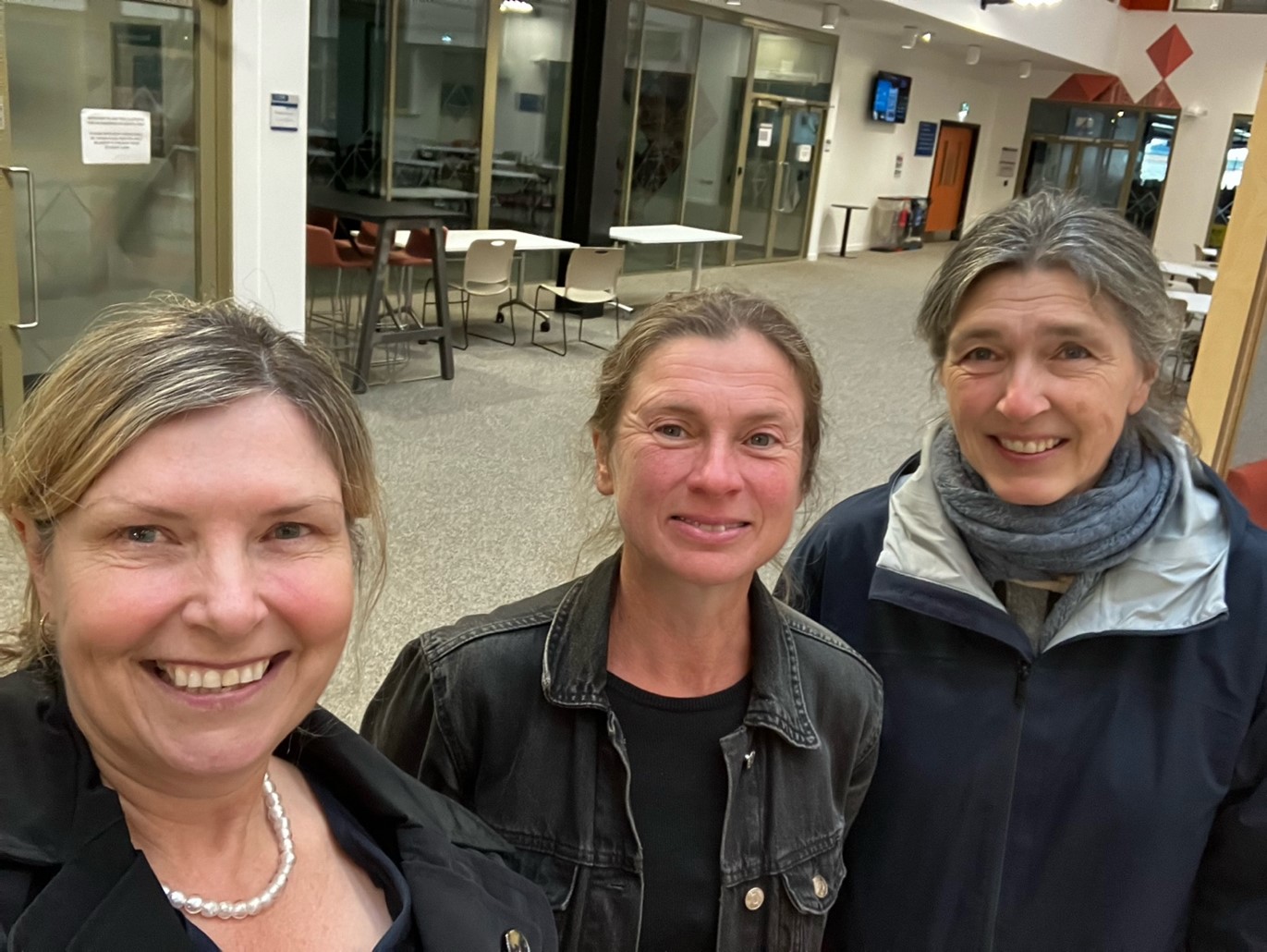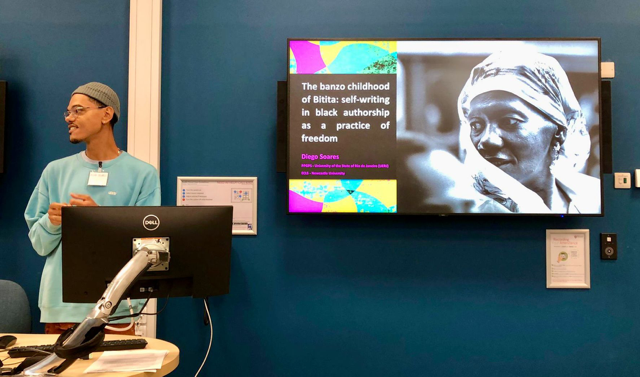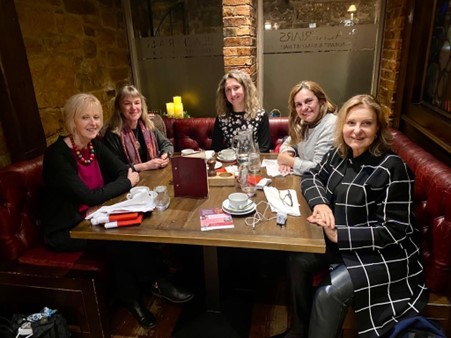ECLS: A Global Hub for International Collaboration and Scholarly Exchange
4 November 2024
ECLS: A Global Hub for International Collaboration and Scholarly Exchange
At the School of Education, Communication and Language Sciences (ECLS) at Newcastle University, international collaboration and cultural exchange are woven into the fabric of academic life. Recent visits by scholars from diverse corners of the world have not only enriched the academic environment but also laid the groundwork for future partnerships, joint research projects, and the exchange of ideas across borders on topics such as educational space design, digital lives of children, inclusive urban places, and virtual exchange.
Ranging from a few weeks to several months, the hosting of international visitors at ECLS is more than just a demonstration of the school’s welcoming nature; it is a strategic commitment to fostering global connections that enrich the educational experience for everyone involved. These visits serve as a reminder of the power of international collaboration to inspire new ideas and approaches in education, communication, and language sciences. By facilitating hosting of international scholars, ECLS positions itself as a key player in the internationalisation of higher education, actively contributing to the global academic community through collaborative research, knowledge exchange, and cultural engagement.
Strengthening international partnerships through cutting-edge collaborative research: Examples from recent visits
The School’s reputation as a centre for research on educational spaces was demonstrated through visits hosted by Dr. Pam Woolner who welcomed Professor Jenny Charteris from Australia (University of New England) and Norwegian scholar Siv Marit Stavem (University of Oslo) in 2023 and 2024. Their work focused on the design and use of educational spaces in different cultural and policy contexts. Previously, Jenny, Pam and Dr. Ulrike Thomas have collaborated on a journal article reflecting on the process of rebuilding an English school under the Priority School Building Programme. During their visit, Professor Charteris and Pam visited a local school where a Newcastle architecture PhD student, who Pam is co-supervising, has been carrying out research into use of material and digital space. Professor Charteris also shared insights on integrating cultural narratives (pūrākau) to inform the design of Aotearoa New Zealand's new generation school buildings, while Siv Marit – a school planner and PhD student – discussed governance of school design, exploring the emergence of learning spaces through policy making, architectural design and teaching practices in Norway. These scholars' overlapping visits led to fruitful discussions and new connections that extended beyond individual research projects, fostering a broader dialogue on the future of educational spaces.
ECLS’s recent hosting of Professors Marilia Costa Morosini (Pontifical Catholic University of Rio Grande do Sul - PUCRS) and Solange Aranha (São Paulo State University) from Brazil in November 2023 illustrates the school's dedication to fostering long-term academic relationships. Hosted by Dr. Müge Satar, the scholars engaged in various activities that enhanced ties between their institutions and ECLS. Professor Aranha explored innovative language learning approaches at the Language Resource Centre and presented a seminar on anxiety and social presence in virtual exchange. Her visit included discussions about future joint projects and student exchange possibilities with ECLS and Brazilian institutions. Professor Morosini, arriving later that month, joined Professor Aranha in events that included presentations at the Centre for Latin American and Caribbean Studies (CLACS). Our international office colleagues also arranged meetings with both colleagues to explore virtual and tandem exchanges with Prof Aranha, and PUCRS-Newcastle PhD student exchange agreements and CAPES PrInt collaboration opportunities with Prof Morosini. Both professors expressed their admiration for the vibrant intellectual atmosphere at our university and their eagerness to continue building on these positive experiences. Their visit coincided with a six-month stay by PhD student Jocelia Martins Marcelino, supervised by Professor Morosini, who focus on the internationalisation of higher education through virtual exchange. These collaborative efforts have already led to plans for joint research projects and further academic exchanges, strengthening the connection between ECLS and their home institutions in Brazil.
Debbie Ralls’ hosting of Dr Andrea Plata from Switzerland (University of Applied Sciences and Arts of Southern Switzerland– SUPSI) in April 2024 also exemplifies ECLS's active involvement in international academic development. Dr. Plata’s two-week visit, funded by the Swiss-European Mobility Programme Movetia, focused on developing research collaboration opportunities regarding Debbie’s work on relational engagement, democratic decision making and inclusive urban places and Andrea’s area of research, which looks at fostering inclusivity, well-being and a sense of belonging within education spaces and groups, and their prospective role in cultivating a more equitable and engaged educational community. Throughout the visit, Andrea had a series of meetings with colleagues from Education and ECLS and shared his research using The Digital Participatory Platform “Ensemble” as part of the Education Section Research Seminar series for 23-24. His presentations and meetings with ECLS colleagues explored intersections of research on inclusivity and democratic engagement in education. The visit also facilitated the co-development of a research proposal, to be submitted in March 2025, focused on inclusive urban spaces and participatory educational decision-making, laying the groundwork for future funding applications.
A final example is Professor Sue Nichols (University of South Australia) who visited ECLS on two occasions, which highlight the school’s dedication to research on digital education and youth studies. During her visits, funded by a British Academy International Visitor grant, Professor Nichols collaborated with Professor Liz Todd and Dr. Ulrike Thomas on a project involving children’s digital networks in two local primary schools in the North East. The research included interactive sessions with 34 children, who spoke about their digital lives, which was fascinating and revealed novel findings. The two classrooms involved were invited into the university campus with their teachers, providing the students with an opportunity to experience university life as "social scientists" for a day, further strengthening the connection between academic research and community engagement. This work has resulted in a draft journal publication and a book proposal, which has been accepted. Sue gave a number of seminars in ECLS and the Faculty, made contact with various other researchers and with a theatre group, and is planning to return in March 2025 with funds from her institution for further data collection, reinforcing ECLS's position as a leader in youth digital studies.
Creating an enriching environment and capacity building for PhD students and early-career researchers
ECLS is also proud to offer a welcoming space to international PhD students who gain invaluable experiences that contribute to their academic growth. In addition to visits by Jocelia Martins Marcelino and Siv Marit Stavem (as described above), PhD student in English Language Teaching at Middle East Technical University, Turkey, Betül Çimenli Olcars visited ECLS for a 12-month visit funded by the Turkish Research council. Co-supervised by Dr Satar during her stay, Betül investigated the interactional mechanisms of talk between higher education students in online intercultural communication (virtual exchange) via videoconferencing. Betül engaged in multiple data sessions at Newcastle and other UK institutions, attended and presented at conferences (e.g. BAAL annual conference), and significantly contributed to our research culture and PGR community. Dr Satar and Betül’s co-publication on topic management in virtual exchange will appear in Classroom Discourse.
Other PhD students, like Diego Soares (State University of Rio de Janeiro (UERJ), Brazil), have made significant contributions while advancing their own research. Co-supervised by Dr. Ralls during his 6-month visit funded by CAPES PrInt, Diego conducted extensive research for his thesis, The Banzo Childhood of Bitita: Autobiography as ritical fabulation in black authorship. Working with Debbie, he furthered aspects of his work regarding relational identity, power and positionality through the process of self-authoring, and presented his work at the CLACS PGR Conference 2024. Debbie had conducted research with Diego’s supervisor Professor Amana Mattos and delivered a series of two PGR seminars at UERJ. Debbie and Diego are currently working on a joint paper for submission to the Journal of Portuguese Studies and discussions are underway with Professor Mattos regarding future collaborations and partnership opportunities between UERJ and Newcastle University.
Looking Ahead: Ongoing and Future Collaborations
The international visits have not only produced immediate academic outputs but also paved the way for sustained partnerships, with plans already underway for future visits and ongoing collaborations. These collaborations open doors for continued research, shared publications, and joint funding applications. The connections made during these visits often extend beyond the individual researchers involved, resulting in stronger, sustained institutional relationships that benefit both ECLS and its partner institutions.
The School of Education, Communication and Language Sciences at Newcastle University is more than a welcoming host to international scholars; it is a thriving hub for global connections that enrich the academic community. The diverse experiences of visitors and the collaborative projects they have engaged in highlight ECLS’s role as a key player in the internationalisation of higher education. Through these partnerships, ECLS continues to build a vibrant, inclusive academic environment that benefits from diverse perspectives and contributes to the global academic community’s shared pursuit of knowledge and innovation.




-(1).jpg)